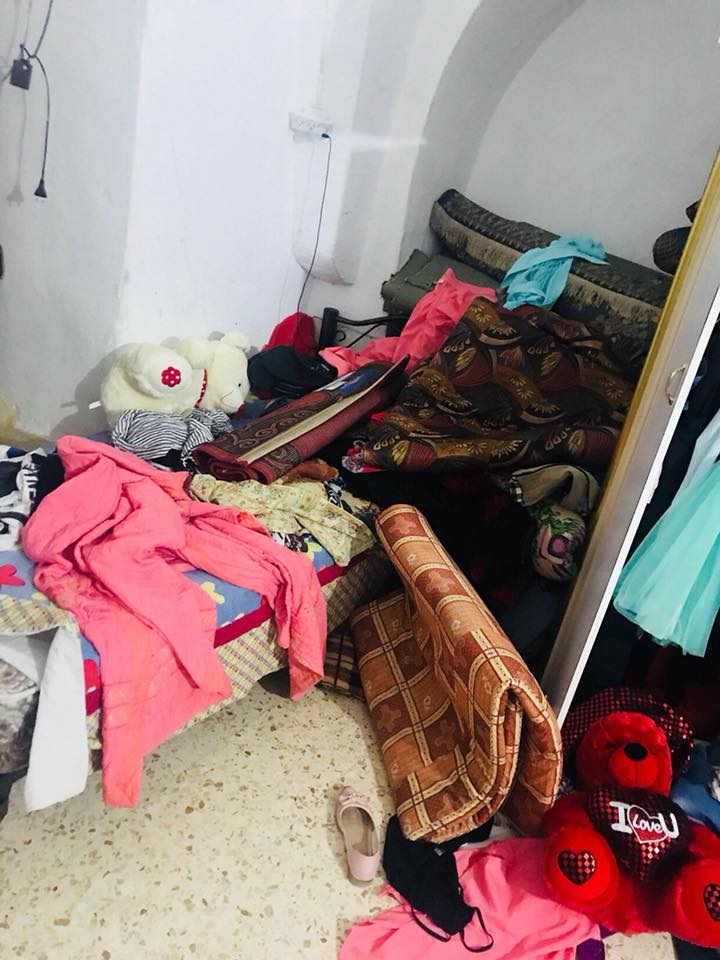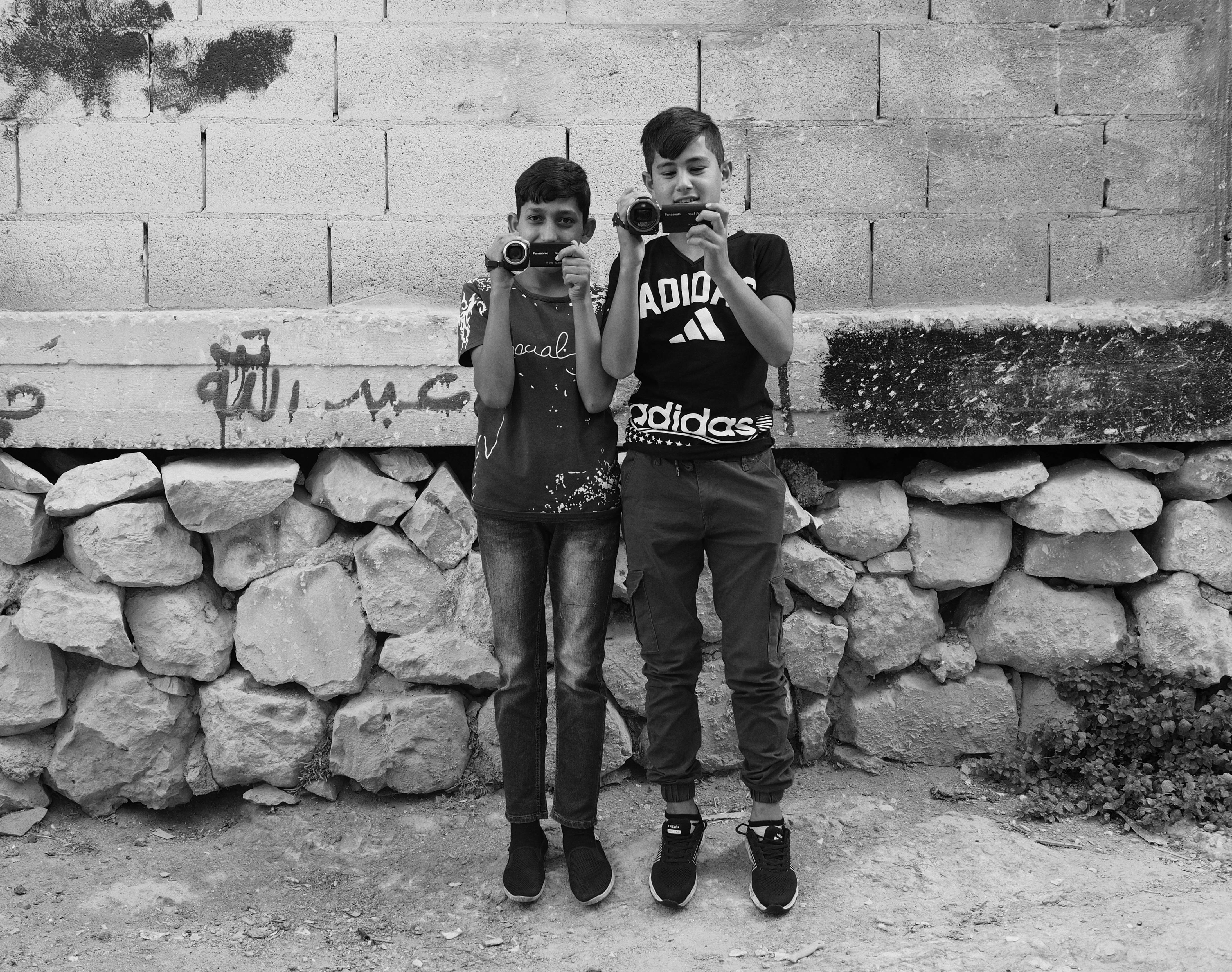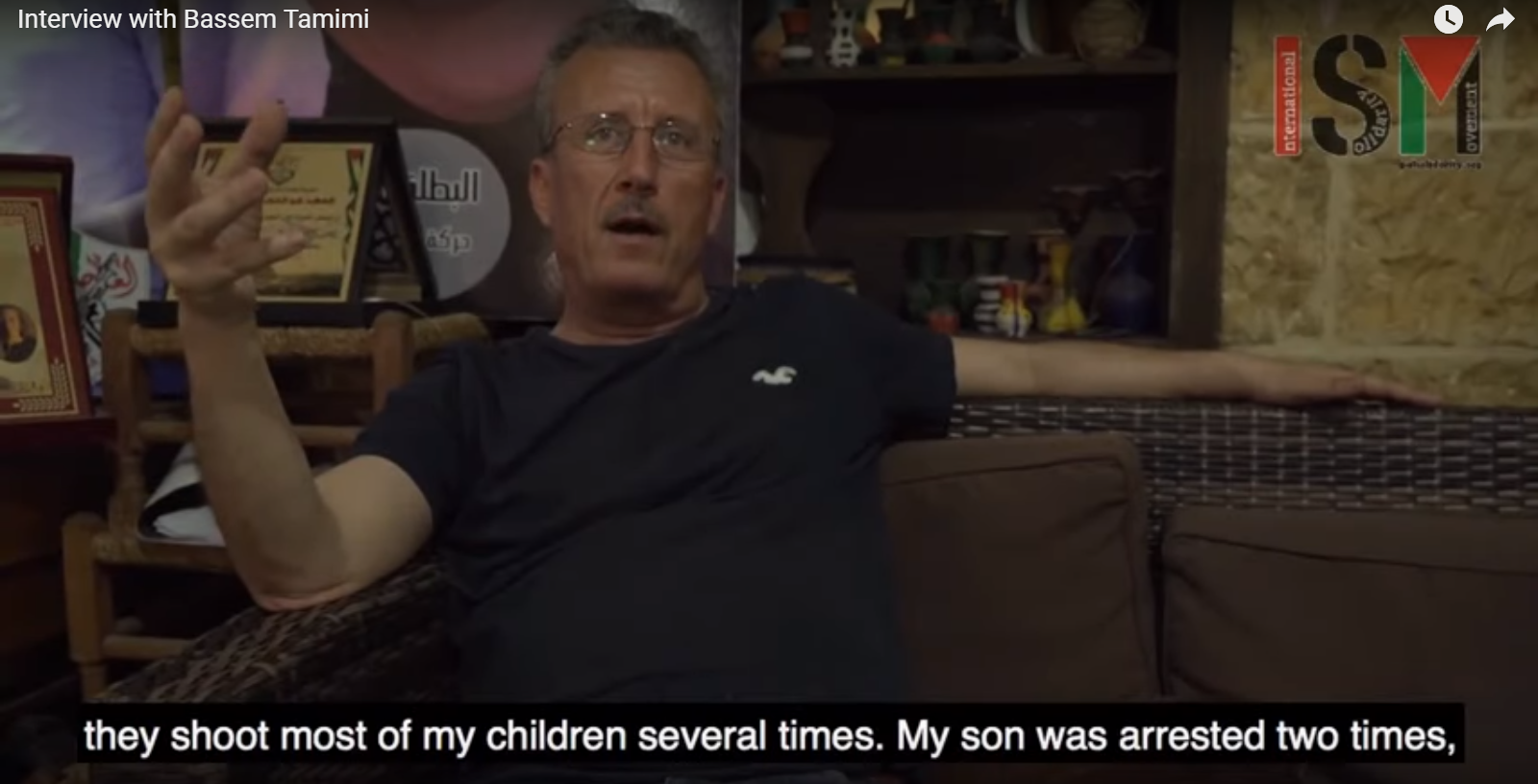Tag: Interview
-
ISM speaks to ‘Aref Jaber about the increase of raids by Israeli forces in his neighborhood
23rd June 2018 | International Solidarity Movement, Al-Khalil team | Hebron, occupied Palestine ‘Aref Jaber lives in the Jaber neighbourhood in the H2 area of occupied Hebron, under Israeli control. He is a local activist and works with Human Rights Defenders filming and publicising the violations of international law committed by Israeli forces in his…
-
‘The camera is our peaceful weapon’: In conversation with the youngest activists in Hebron
Translated by Badee Dueik and interpreted for written article by ISM members Abdullah and Saleh live with their families in the Tel Rumeida area of occupied Hebron, under Israeli control. They are both twelve, and have been best friends for around four years. They are the youngest members of Human Rights Defenders (HRD), a collective…
-
‘Why Ahed slapped the soldier’: an interview with Bassem Tamimi
12th June 2018 | Mondoweiss | Nabi Saleh, occupied Palestine This interview with Bassem Tamimi was recorded on May 4, 2018 in the occupied village of Nabi Saleh, by International Solidarity Movement activists. His daughter Ahed Tamimi, 17, is serving an eight-month prison sentence for slapping an Israeli soldier on the family’s property on December 15…



